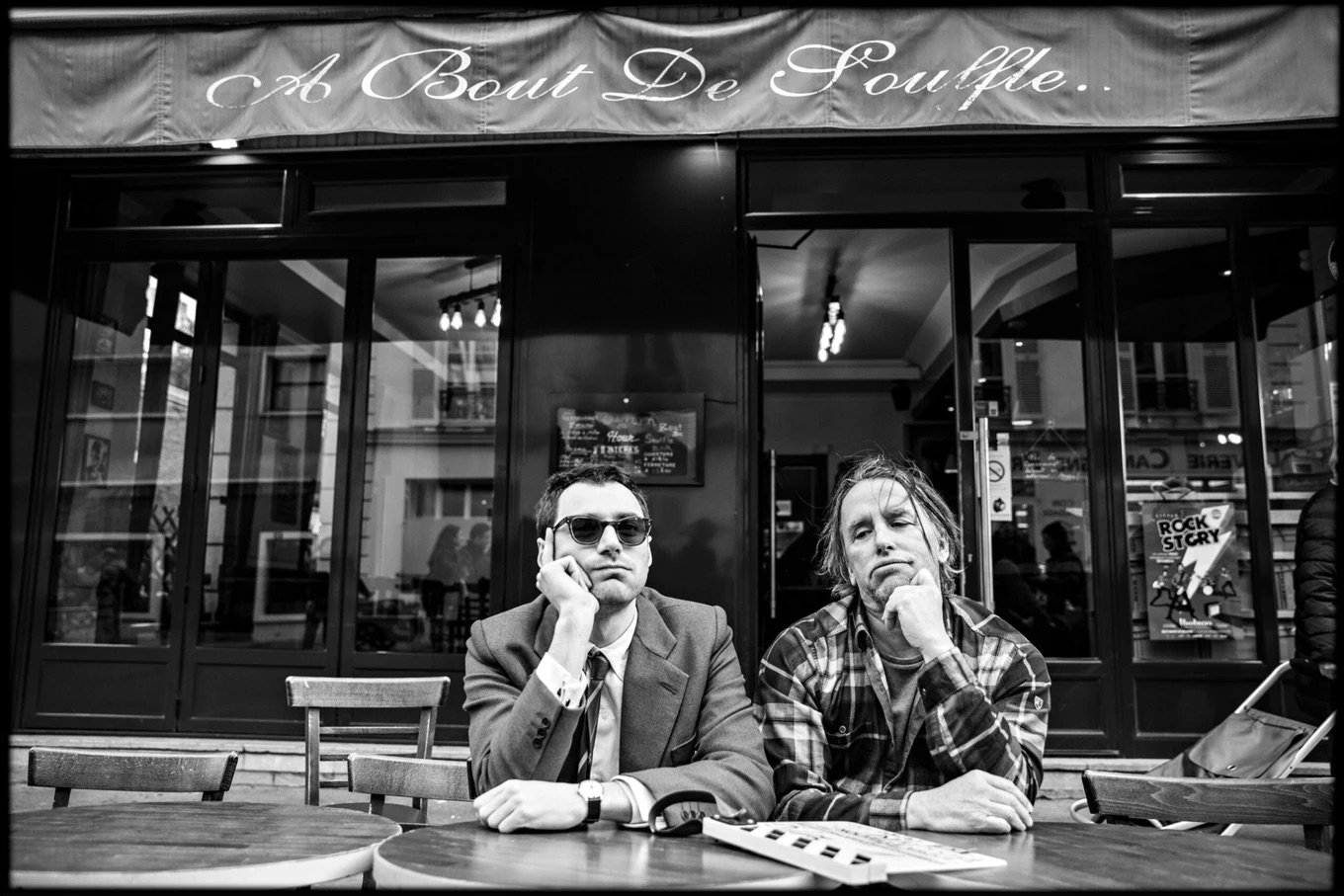Richard Linklater’s ‘Nouvelle Vague’ Rolls Into Cannes With 11-Minute Ovation
'Nouvelle Vague' Goodfellas
Quentin Tarantino watches twice in one day as Linklater’s French-language homage to Godard premieres to acclaim.
Richard Linklater’s Nouvelle Vague officially premiered in competition at the 2025 Cannes Film Festival and received one of the festival’s most resounding receptions so far—a full 11-minute standing ovation inside the Grand Théâtre Lumière. And among those applauding? Quentin Tarantino, who reportedly saw the film twice in the span of eight hours, helping to lead the applause both times.
Tarantino first attended a private morning screening on Saturday, then made his way back for the film’s red carpet world premiere that evening—one of the most talked-about and cinephile-heavy events of the festival. According to insiders, he was visibly moved by the film’s final act, even engaging in an impromptu conversation with Linklater after the credits rolled. The buzz surrounding Tarantino’s back-to-back viewings only heightened speculation that Nouvelle Vague is likely to emerge as a top contender for the Palme d’Or.
Shot entirely in French and steeped in nostalgia, Nouvelle Vague is not a remake of Breathless, but rather a behind-the-scenes reimagining of the iconic 1959 film’s creation. Linklater reconstructs the moment the French New Wave was born, reframing its mythology with both reverence and fresh perspective. Guillaume Marbeck plays Jean-Luc Godard as a whip-smart critic transitioning into his first foray behind the camera. Zoey Deutch channels Jean Seberg’s cool charisma, while newcomer Aubry Dullin brings youthful swagger to his portrayal of Jean-Paul Belmondo.
The supporting cast includes dramatized versions of legendary filmmakers and collaborators—Claude Chabrol, François Truffaut, Suzanne Schiffman, and Raoul Coutard—all captured during the volatile but thrilling early days of what would become a seismic movement in cinema. Rather than stylize these characters as icons, Linklater treats them as curious, flawed creatives navigating insecurity and invention.
“This is not about remaking Breathless, but looking at it from another angle,” Linklater explains in the film’s production notes. “I want to dive into 1959 with my camera and recreate the era, the people, the atmosphere. I told all the actors: ‘You are NOT making a period film. You are living in the moment.’”
Nouvelle Vague leans into its referential nature while maintaining a strong emotional current. The film’s visual language mimics Godard’s own: erratic zooms, tight black-and-white framing, spontaneous edits, and philosophical voiceover that breaks the fourth wall. But what makes it resonate is the personal sense of wonder that Linklater threads through every frame—a director clearly in love with cinema, interrogating the moment when it was most alive.
This marks Linklater’s first Cannes Competition slot since 2006’s Fast Food Nation. That same year, he also appeared in Un Certain Regard with A Scanner Darkly. In 2024, he debuted the musical Blue Moon at Berlinale, earning acclaim for its stylistic experimentation. With Nouvelle Vague, his 33rd feature film, Linklater continues to defy expectations, refusing to settle into a single creative lane.
ARP Selection handles production and distribution in France, while international sales are managed by Vincent Maraval’s Goodfellas. The screenplay comes from a collaboration between Linklater and longtime co-writers Holly Gent and Vince Palmo, along with French screenwriters Michèle Halberstadt and Laetitia Masson.
Much of the film takes place in and around Cannes itself, with characters attending screenings, debating cinema over late-night drinks, and scrambling to shoot in borrowed locations. Linklater uses the festival as both a literal and symbolic setting—showing how cinema history is made not just by film, but by the messy, human process behind it.
While Nouvelle Vague is deeply entrenched in cinephile culture, it also functions as a playful and poignant reflection on the eternal dream of making movies. It captures that ephemeral, electric moment before a masterpiece is born—when doubt and ambition exist in equal measure. For fans of film history and formal experimentation, it’s a feast. For casual viewers, it’s an invitation.
The film currently holds a 100% rating on Rotten Tomatoes following early reviews, with critics praising its conceptual ambition and infectious affection for its subject matter.









